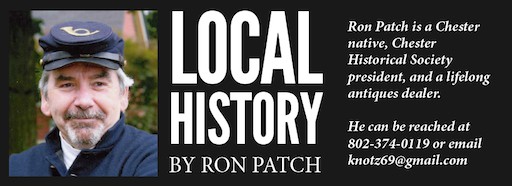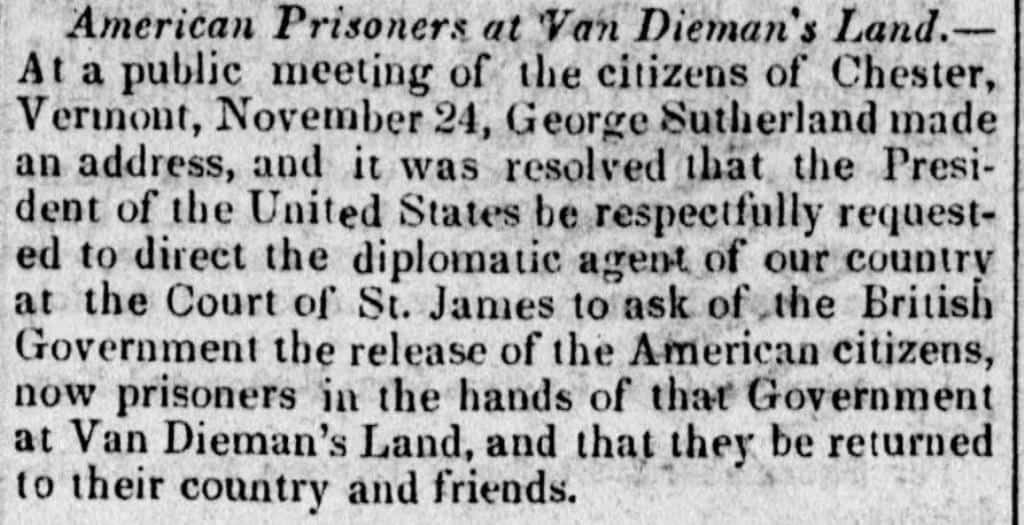
Frank Bidwell found this article in the Dec. 14, 1843 Whig Standard at the Library of Congress. The Whig Standard was a daily newspaper in Washington, D.C. I suggest you read the Whig newspaper article from Frank first, and then read my article. This will help you follow along, I hope.
I found some information at Wikipedia. In my library are 20 volumes of “Messages and Papers of the Presidents.” Here I found a more detailed history. These books cover President George Washington’s papers through President Woodrow Wilson’s papers.

Court of St. James
“The Court of St James’s is the royal court for the Sovereign of the United Kingdom.
“All ambassadors and high commissioners to the United Kingdom are formally received by the court. All ambassadors and high commissioners from the United Kingdom are formally accredited from the court – not the United Kingdom – as they are representatives of the Crown.”
Van Diemen’s Land
Van Diemen’s Land was an island off the coast of Australia. In the 1800s there were several penal colonies on the island. Today we know this island as Tasmania.
“From the early 1800s to the 1853 abolition of penal transportation (known simply as “transportation”), Van Diemen’s Land was the primary penal colony in Australia. Following the suspension of transportation to New South Wales, all transported convicts were sent to Van Diemen’s Land. In total, some 73,000 convicts were transported to Van Diemen’s Land.
“Male convicts served their sentences as assigned labor to free settlers or in gangs assigned to public works. Only the most difficult convicts (mostly re-offenders) were sent to the Tasman Peninsular prison known as Port Arthur. Female convicts were assigned as servants in free settler households or sent to a female factory (women’s workhouse prison). There were five female factories in Van Diemen’s Land.”
Messages and Papers of the Presidents
“Washington, July 16, 1841
“To the Speaker and Members of the House of Representatives:
“In compliance with a resolution to the House of Representatives of the 21st ultimo, I have the honor to submit the accompanying communication from the Secretary of State.
John Tyler
“Transmitting correspondence with Great Britain relative to the seizure of American vessels by British armed cruisers under the pretense that they were engaged in the slave trade; also correspondence with N.P. Trist, United States counsel at Habana, upon the subject of the slave trade, etc.
“Stating that there is no correspondence in his office showing that any American citizens are British prisoners of state in Van Diemen’s Land; transmitting correspondence with the British minister on the subject of the detention or imprisonment of citizens of the United States on account of occurrences in Canada, instructions issued to the special agent appointed to inquire into such detention or imprisonment, and report of said special agent.”
My theory
This is a subject that wasn’t taught at Chester High School, and I didn’t go to college so I wasn’t aware of it. Remember I’m not educated.
I was unable to locate George Sutherland anywhere. Maybe Sutherland was the special agent mentioned, or at the least had a connection with that special agent.
Because Canada is mentioned I theorize that an unknown Chester man, perhaps serving onboard one of our ships, or maybe visiting nearby Canada was arrested and sent to Van Diemen’s Land and this is why Sutherland spoke in Chester.
I hope there’s a reader who knows something about this history and can determine who and why Sutherland was in Chester. Perhaps you have a son or daughter majoring in American history. It might be a fun research project. I may be way off in my thinking but at least this long lost bit of history is now recorded.
Instead of an old saying I offer another Jack Bittner story. Jack and his wife Rachel were living in Putney when this auction occurred. This was one of Jack’s better auctions.
Jack placed an ad for this auction in the Newtown Bee. The Bee was a weekly trade paper that most antiques dealers subscribed to. It was widely circulated throughout New England and as far off as California.
On the day of the auction several first-time out-of-state dealers showed up. One of these dealers spent a ton of money. He approached Rachel to pay his bill. Rachel added it up and told him the amount due. He asked Rachel, “How much does your bank charge for a returned check?” Rachel: “Twenty dollars.” His reply, “OK, I’ll add that to the check.”